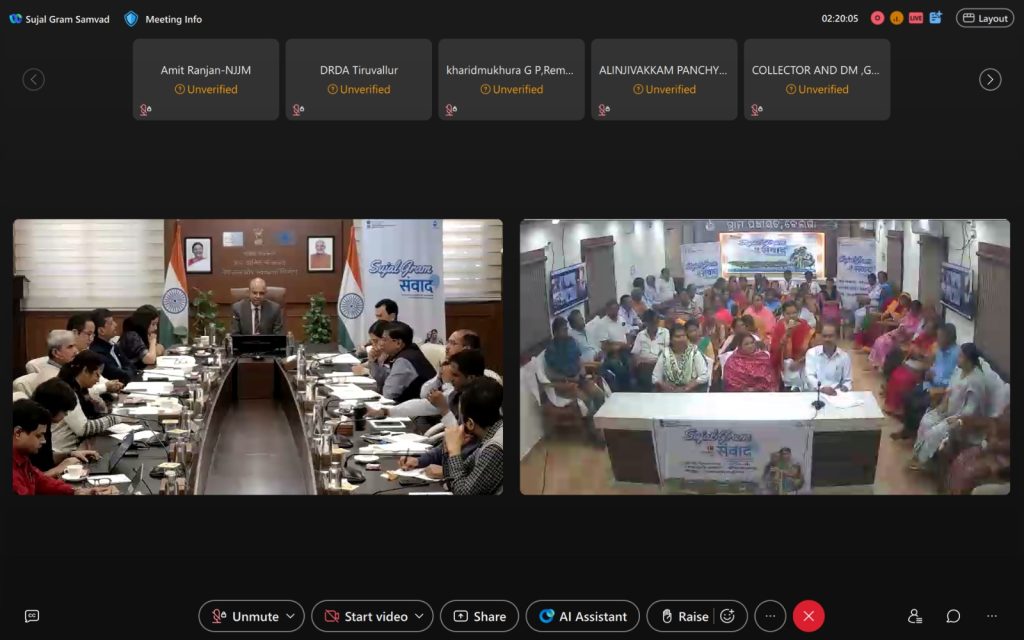New Delhi: The inaugural Sujal Gram Samvad, organized by the Department of Drinking Water & Sanitation (DDWS), Ministry of Jal Shakti, provided a national stage today for villagers from 12 States and Union Territories to share inspiring stories of transformation brought about by the Jal Jeevan Mission (JJM).
The event began with a presentation from Belagam village in the Ganjam District of Odisha. Villagers detailed how systems for user-fee collection, water quality testing, and community-level monitoring have bolstered their daily water supply.
Shri Ashok Meena, Secretary of DDWS, engaged with the community in Odia, commending their strong community leadership and the active participation of women.
Shri Meena, a pro-people Mandarin has initiated this innovative initiative to talk to people on India’s Flagship Program.
The connection of Secretary, DDWS, Shri Ashok Meena, with Odisha, particularly highlighted during the Sujal Gram Samvad, is rooted in his extensive administrative career as an Indian Administrative Service (IAS) officer of the 1993 batch from the Odisha cadre.

During the Samvad, his interaction with the villagers of Belagam in the Ganjam District of Odisha was conducted in Odia, which the source explicitly noted, “appreciating their community leadership and women’s involvement.”
His deep familiarity with the state and its regional language stems from holding various crucial positions within the Odisha Government throughout his career, including:
Serving as an IAS officer trainee in Mayurbhanj District, Holding roles as Assistant Collector at Mayurbhanj, Sub Collector and SDM at Berhampur, and Project Director at Ganjam (the same district as Belagam village), Working as the Collector and District Magistrate of Keonjhar. Implementing the Orissa R & R Policy, 2006, Administering 10 districts of Odisha as a Revenue Divisional Commissioner for Central and Northern Division.
Working as the Chief Administrator for the Shri Jagannath Temple Administration, Puri and Serving as Principal Secretary in various departments of the state, including Finance, Panchayati Raj and General Administration.
This background indicates a long and deep service history in the state, explaining his ability to engage directly with the villagers in their native language and his appreciation for the ground-level efforts in the region.
Narrating their experiences in regional languages including Odia, Tamil, Hindi, Gujarati, Marathi, Punjabi, Mizo, Rajasthani, Manipuri, Telugu, Maghi, and Bundelkhandi, village representatives detailed the profound impact of accessing safe tap water. Stories highlighted improvements in health, a decrease in water-borne diseases, better school attendance for girls, the liberation of women from arduous water collection, and the creation of new livelihood opportunities.
Communities underscored their collective action in ensuring the mission’s success, describing efforts to repair infrastructure, maintain uninterrupted supply, conduct water quality testing, promote water conservation, support user-charge collection, and establish local grievance redressal systems.
The Samvad saw participation from over 1,500 individuals nationwide, with more than 800 joining interactively and an equal number connecting via YouTube, making it a truly national listening exercise.


